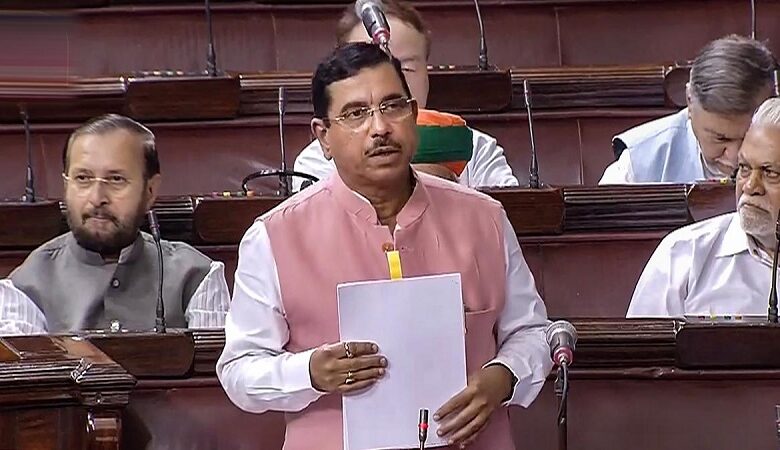Rajya Sabha Passes Three Bills Amidst Opposition Walkout

The Rajya Sabha witnessed the passage of three important Bills on Wednesday, as Opposition members staged a walkout in protest against the denial of an adjournment motion on the Manipur violence. Despite the absence of a heated debate, the Mines and Minerals (Development and Regulation) Amendment Bill, the Forest (Conservation) Amendment Bill, and the Jan Vishwas (Amendment of Provisions) Bill were passed unopposed.
The Mines and Minerals (Development and Regulation) Amendment Bill seeks to allow private players to explore atomic minerals, including lithium, beryllium, niobium, titanium, tantalum, and zirconium. Currently, only State agencies are permitted to explore these minerals. Once the Bill becomes an Act, the Centre will gain the authority to auction mining leases and composite licenses for critical minerals such as gold, silver, copper, zinc, lead, nickel, cobalt, platinum group minerals, and diamonds.
Several mineral-rich states, such as Kerala, raised objections to the Bill and urged the Centre to engage in discussions with them before its passage. However, Union Minister for Coal and Mines, Pralhad Joshi, defended the Bill, stating that India possesses around 95 precious minerals, but due to policy paralysis, corruption, and nepotism in previous governments, the country still relies on imports. The Bill is an attempt to address these issues and encourage domestic mining and exploration.
The Forest (Conservation) Amendment Bill, as explained by Union Environment Minister Bhupender Yadav, aims to support infrastructure development while ensuring the protection of forests. This Bill provides exemptions for land situated within 100 kilometres of international borders, Line of Control, Line of Actual Control, and proposed areas for strategic linear projects essential for national security. Additionally, the Bill exempts land up to 10 hectares intended for constructing security-related infrastructure, defence projects, paramilitary forces’ camps, and specified public utility projects, particularly in left-wing extremism-affected areas.
Minister Yadav highlighted the Bill’s intention to declare zoo and eco-tourism as non-forest activities, enabling local communities to generate income through eco-tourism while preserving traditional knowledge about wildlife.
The Jan Vishwas (Amendment of Provisions) Bill was also passed by voice vote. Minister of Commerce and Industry, Piyush Goyal, asserted that the Bill would promote ease of doing business by decriminalizing certain provisions in trade and commerce-related laws. This move is expected to create a favourable business environment and facilitate growth and investments in the commercial sector.
While the passage of these Bills marks a significant step towards promoting domestic development and ease of doing business, the Opposition’s walkout signifies their concerns and calls for greater dialogue and deliberation on crucial legislative matters. The government will need to address these concerns and ensure that future policymaking fosters collaboration and consensus among all stakeholders.
As these Bills now proceed to the Lok Sabha for further deliberation, it remains to be seen how they will shape India’s economic and environmental landscape. The government’s commitment to promoting indigenous industries, protecting natural resources, and facilitating business growth will be essential in achieving sustainable and inclusive development across the nation.
News Mania Desk / Agnibeena Ghosh-3rd August






